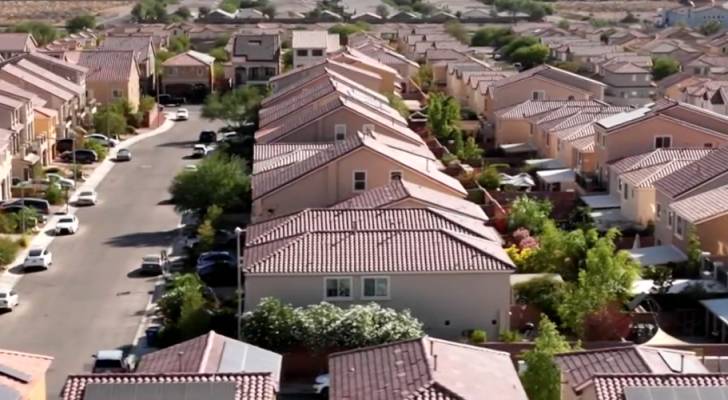Southwest Florida Real Estate Market Faces Significant Slowdown Amid Rising Costs
The once bustling real estate scene in southwest Florida, particularly in Fort Myers, has undergone a notable slowdown, stirring concern among homeowners and real estate professionals alike. Properties that previously sold within weeks are now languishing on the market for months, reflecting a shift that may indicate broader challenges facing Florida’s housing market.
Fort Myers Homeowners Struggle Amid Prolonged Selling Times
Many sellers, like Darleen Strange, express growing anxiety as their homes remain unsold far beyond expectations. Strange has been attempting to sell her mother’s Fort Myers residence since last November. “It makes me wonder, is it ever gonna happen?” she shared with WINK News. The property has been listed for approximately 157 days, with only four potential buyers showing interest.
Local data reinforces these sentiments. Where homes used to sell in an average of about 50 days two years ago, they now remain listed for nearly 100 days. Fort Myers area realtor Sue Christiano confirms this trend, highlighting listings that have lingered for months without satisfactory offers. “I had one property that was on the market for 10 months and it didn’t sell,” she revealed to Gulf Coast News Today. The offers received were typically lowball bids, deterring sellers from closing at those prices.
Broader Impact Across Florida Cities
This slowdown extends beyond Fort Myers, affecting key Florida metropolitan hubs such as Tampa Bay and Miami. According to CBS News Miami, homes in South Florida now average 90 days on market, a stark increase from 60 days a few years ago. Meanwhile, Tampa Bay is experiencing a rise in housing inventory and market dynamics favoring buyers, as reported by ABC Action News.
Why Is the Market Cooling?
Several interrelated factors underlie this cooling trend in Florida’s housing market:
-
Higher Mortgage Rates: Fixed 30-year mortgage rates nationally hover near 6.9%, increasing monthly payments and reducing buyers’ purchasing power. According to Mortgage News Daily, this increase may discourage many prospective purchasers.
-
Escalating Home Insurance Premiums: Florida homeowners face sharply rising insurance costs driven by climate-related risks such as hurricanes and flooding. The Wall Street Journal reports severe storm damages cost insurers approximately $58 billion in 2024 alone. Nationwide, the Consumer Federation of America notes a 24% increase in home insurance premiums over the past three years.
- Elevated Listing Prices: Residual impacts from the pandemic-driven housing boom left home prices inflated, further complicating affordability.
The Impact on Sellers and Buyers
For sellers like Strange, the timing couldn’t be worse. The proceeds from her mother’s home sale are essential for covering assisted-living expenses. “We’re getting into the point where if something doesn’t happen within the next year, it’ll be a very scary situation,” she noted.
Buyers, on the other hand, face hurdles with increased borrowing costs and higher insurance premiums, creating a potential affordability crisis. This environment is redefining who can enter the housing market, where, and under what financial conditions.
Market Correction vs. Market Crash
Despite the slowdown, experts emphasize that Florida’s housing market is undergoing a correction rather than a collapse. Home prices have dipped by approximately 3% over the past year and appear to be stabilizing. However, the accumulation of unsold inventory in regions like Fort Myers might prolong this adjustment phase.
The Long-Term Challenge: Rising Insurance Costs
The continual surge in insurance premiums poses a significant threat to homeownership affordability. In some cases, homeowners are opting to forgo insurance, a risky move that jeopardizes their most valuable asset. Furthermore, as insurers withdraw from high-risk markets due to climate threats, the equity of existing homeowners could be adversely impacted, as highlighted by the Bipartisan Policy Center.
What Does This Mean for Florida’s Housing Future?
- Affordability Crisis: Increasing mortgage rates and insurance costs are squeezing both buyers and sellers.
- Shifting Market Dynamics: A transition toward a buyer’s market in key Florida areas.
- Geographical Variability: Certain regions, particularly those prone to natural disasters, may experience more pronounced challenges.
Conclusion
Florida’s housing market is at a critical juncture. While the current slowdown reflects market correction forces, the combination of rising mortgage and insurance costs is reshaping the landscape of homeownership. Prospective buyers and sellers must navigate an evolving market that demands careful financial consideration and awareness of the broader economic and environmental factors at play.
For more insight into housing market trends and personal finance strategies, visit sources like Consumer Federation of America and Mortgage News Daily.
Explore additional real estate updates and financial advice to stay informed in today’s dynamic housing market.


